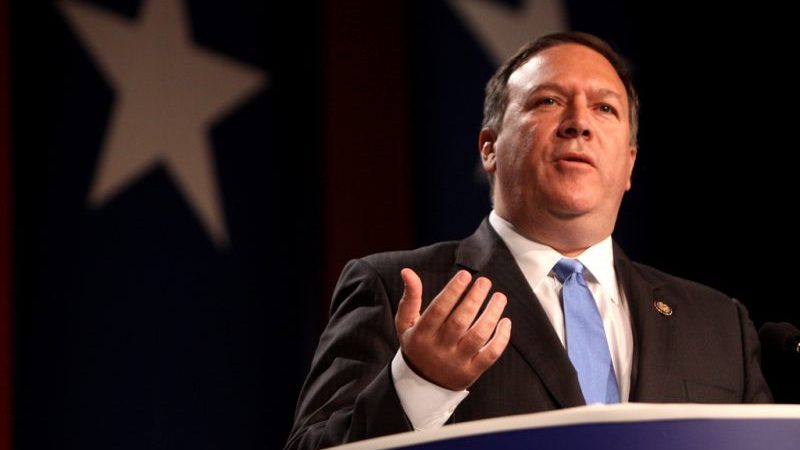Nobody ever accused Rex Tillerson of being an eco-warrior, but his time answering to ExxonMobil shareholders – and litigants – at least forced him to pay some attention to climate science.
Now Donald Trump wants to replace him as US foreign affairs chief with Mike Pompeo, who has faced no such constraints.
Pompeo has taken more campaign funding from the Koch Industries anti-climate lobby than any other lawmaker and described the Paris Agreement as a “costly burden”.
The White House needs the support of Democrat senators to confirm the appointment, Politico reports – which is unlikely to be granted readily.
If Pompeo secures the job, the question will be whether he actively sabotages UN climate talks or merely neglects them.
When Pompeo took his job at the CIA, the New York Times’ Lisa Friedman made this helpful list of things he had said about Obama’s climate stance.
Trump reportedly taps Rep. Pompeo for CIA. For a sense of whether he will consider climate change a national security threat… pic.twitter.com/FwFRZyKKl0
— Lisa Friedman (@LFFriedman) November 18, 2016
China reshuffle
Meanwhile, the Chinese government is undergoing a radical restructure. Climate change policy is moving from the National Development and Reform Commission (NDRC) to the newly created Ministry for Ecological Environment.
The jury is out over whether this strengthens or weakens the climate agenda. China Dialogue reports the intention is to unify previously fragmented environmental governance.
On the other hand, NDRC was a powerful force in Chinese politics, so this may represent a downgrade.
Any comments or tips? Get in touch: [email protected]
Reclaiming coal
This week we published an investigation, six months in the making, into the arrangements for cleaning up after US coal mines. Mark Olalde went to heroic lengths to source, order and analyse data from 23 states and the federal regulator. Make time for it.
The key finding is the system is critically underfunded, particularly in Appalachia. Efforts to wipe out the risky practice of “self-bonding” have stalled under Trump. And staff cuts are weakening enforcement of environmental standards.
It matters because sooner or later, nearly all coal mines need to close for a safe climate future. If coal mining companies dodge clean-up costs, either taxpayers pick up the bill or former mining towns are left with a scarred and barren landscape.
German disappointment
One country planning for coal’s endgame is Germany. The coalition agreement finalised earlier this month included plans for a commission to set a timeline for phasing out coal.
That is long overdue, writes Niklas Höhne in an analysis of the coalition’s climate package that pulls no punches. The country is making three steps forward and four steps back, he says, and surrendering its beleaguered reputation as a climate leader.
Not to be jingoistic about it, but the UK is quietly making much stronger progress on ending coal use. Preliminary government data crunched by Carbon Brief shows the country’s 2017 emissions dropped to levels last seen in 1890.
Oh, and Ireland has announced plans to join the international Powering Past Coal Alliance and close its last coal power plant in 2025.
EV crunch
In Norway, electric car supplies cannot keep up with demand. Customers face a wait of up to two years for existing models and are putting down deposits already for cars that have not been launched yet.
It is testament to the effectiveness of incentives to adopt electric vehicles, write researchers from Cicero – but if policymakers do not address supply bottlenecks, it threatens Norwegian and EU climate targets.
Solar funds
It feels like it’s already been launched about three times, but the International Solar Alliance had its official founding conference in New Delhi on Sunday.
Narendra Modi, true to form, referenced Hindu scripture. “The Vedas consider the sun as the soul of the world, it has been considered as a life nurturer,” he said. “Today, for combating climate change, we need to look at this ancient idea to find a way.”
And France’s Emmanuel Macron made himself welcome with a €700 million finance pledge to the initiative. Improving access to finance is one of the alliance’s priorities.
What’s in a name?
Statoil is rebranding. The Norwegian oil and gas major revealed its new name Equinor with a video montage of diverse people extolling the virtues – and necessity – of change. Not an oil rig, tanker or barrel in sight. Which is still, let’s not forget, how they make their money.
